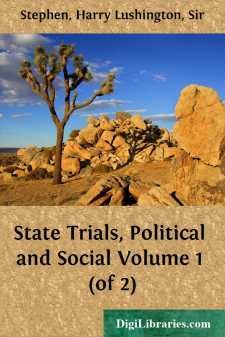Categories
- Antiques & Collectibles 13
- Architecture 36
- Art 48
- Bibles 22
- Biography & Autobiography 816
- Body, Mind & Spirit 145
- Business & Economics 28
- Children's Books 17
- Children's Fiction 14
- Computers 4
- Cooking 94
- Crafts & Hobbies 4
- Drama 346
- Education 58
- Family & Relationships 59
- Fiction 11834
- Foreign Language Study 3
- Games 19
- Gardening 17
- Health & Fitness 34
- History 1378
- House & Home 1
- Humor 147
- Juvenile Fiction 1873
- Juvenile Nonfiction 202
- Language Arts & Disciplines 89
- Law 16
- Literary Collections 686
- Literary Criticism 179
- Mathematics 13
- Medical 41
- Music 40
- Nature 179
- Non-Classifiable 1768
- Performing Arts 7
- Periodicals 1453
- Philosophy 66
- Photography 2
- Poetry 897
- Political Science 203
- Psychology 45
- Reference 154
- Religion 516
- Science 126
- Self-Help 85
- Social Science 82
- Sports & Recreation 34
- Study Aids 3
- Technology & Engineering 59
- Transportation 23
- Travel 463
- True Crime 29
Our website is made possible by displaying online advertisements to our visitors.
Please consider supporting us by disabling your ad blocker.
State Trials, Political and Social Volume 1 (of 2)
Categories:
Description:
Excerpt
G. de L'É. D.
Dear Gerald,—As you suggested the idea of this book to me, and as I know that whether it succeeds or fails I can count confidently on your sympathy, I will throw into the form of a letter to you the few remarks which I might otherwise put into a preface. For as I have confessions to make which amount almost to an apology, I had rather address them to one who is pledged to express the most favourable possible view of my literary efforts, such as they are, than to that hypothetical reader, of whose tastes I feel most shamefully ignorant, though I am ready to assume everything in his favour.
Far abler writers than I have frequently dilated on the charms attending a study of the reports of State Trials, as they are best known to the world; namely, in one-and-twenty stately volumes compiled by the industrious Howells, father and son, and published, a year after the battle of Waterloo, by the combined efforts of on a few of my contemporaries the idea that persons long since dead on the block or the gallows were Englishmen very much like ourselves, my object is secured.
My task has been confined to a selection of passages to be transferred bodily from Howell's pages; to providing in an abbreviated form the connecting-links between them; and to the supply of sufficient notes to enable the ordinary reader to understand the main outlines of the stories of which the trial generally constitutes the catastrophe. As to my takings from Howell, I need say but little. I have indicated their existence by a change of type. I have carefully preserved those departures from conventional grammar, and that involved and uncouth, but, for that very reason, life-like style of narration which he and his predecessors inherited from the original but unknown authorities. As to my abbreviations, I am fully aware that they do not represent any very high literary effort. It is, I suppose, impossible that mere condensation of another man's narrative should be done very well; but it can certainly be done very ill. My aim, therefore, has been rather to escape disaster than to achieve any brilliant success. The charm of State Trials lies largely in matters of detail:—that Hale allowed two old women to be executed for witchcraft; that Lord Russell was obviously a traitor; that an eminent judge did not murder a woman in the early part of his career; and that a sea-captain did murder his brother in order to inherit his wealth, are in themselves facts of varying importance. What the trials in these cases tell us, however, as nothing else can, is what were the popular beliefs as to witchcraft shared by such a man as Hale; how revolutions were planned while such things were still an important factor in practical politics; and what was the state of the second city in the kingdom when a man could be kidnapped in its busiest streets by a gang of sailors and privateers-men. And this effect can only be reproduced by considering a mass of detail, picturesque enough in itself, but not always strictly relevant to the matter in hand....


